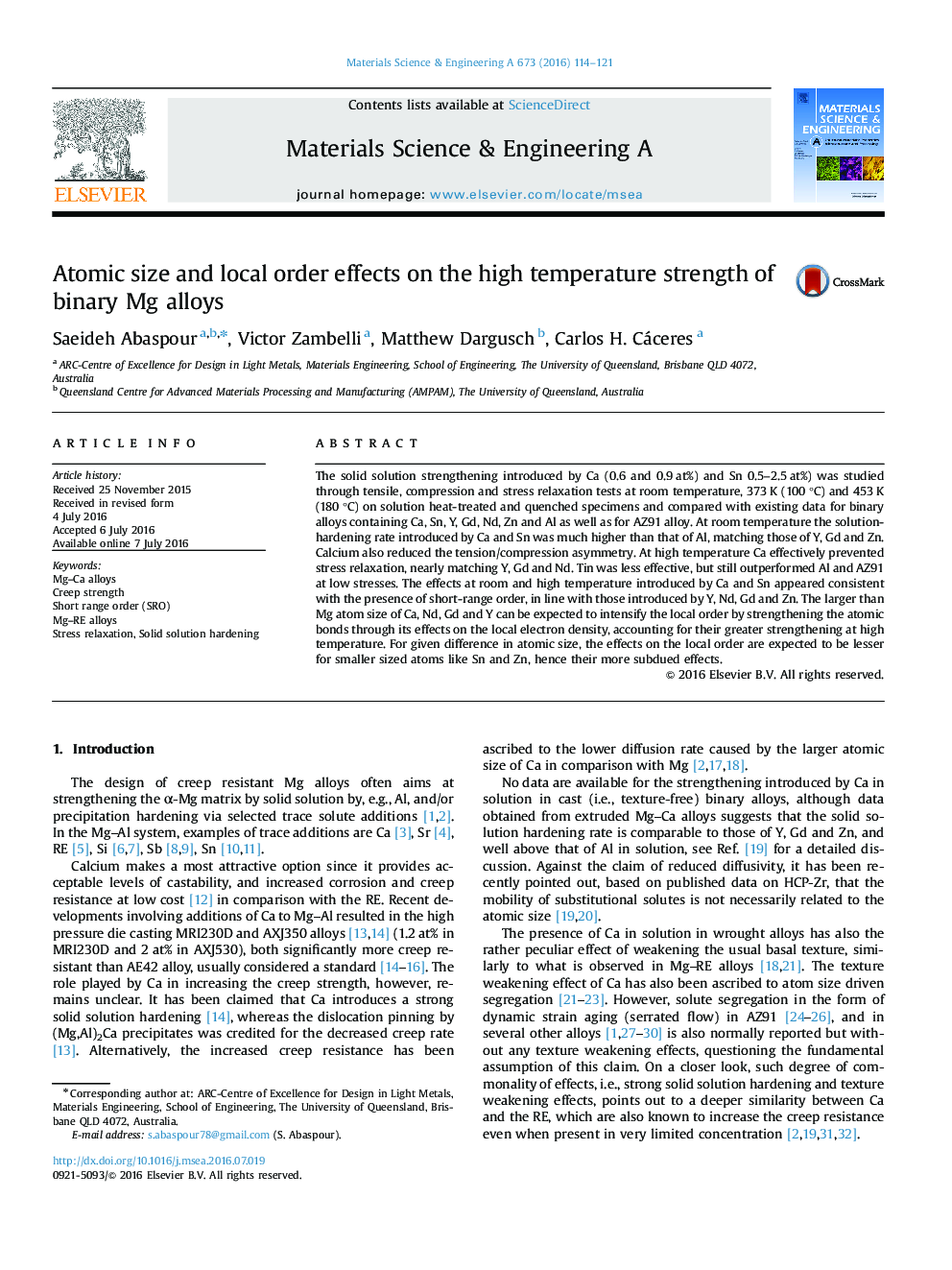| Article ID | Journal | Published Year | Pages | File Type |
|---|---|---|---|---|
| 1573118 | Materials Science and Engineering: A | 2016 | 8 Pages |
Abstract
The solid solution strengthening introduced by Ca (0.6 and 0.9 at%) and Sn 0.5-2.5 at%) was studied through tensile, compression and stress relaxation tests at room temperature, 373 K (100 °C) and 453 K (180 °C) on solution heat-treated and quenched specimens and compared with existing data for binary alloys containing Ca, Sn, Y, Gd, Nd, Zn and Al as well as for AZ91 alloy. At room temperature the solution-hardening rate introduced by Ca and Sn was much higher than that of Al, matching those of Y, Gd and Zn. Calcium also reduced the tension/compression asymmetry. At high temperature Ca effectively prevented stress relaxation, nearly matching Y, Gd and Nd. Tin was less effective, but still outperformed Al and AZ91 at low stresses. The effects at room and high temperature introduced by Ca and Sn appeared consistent with the presence of short-range order, in line with those introduced by Y, Nd, Gd and Zn. The larger than Mg atom size of Ca, Nd, Gd and Y can be expected to intensify the local order by strengthening the atomic bonds through its effects on the local electron density, accounting for their greater strengthening at high temperature. For given difference in atomic size, the effects on the local order are expected to be lesser for smaller sized atoms like Sn and Zn, hence their more subdued effects.
Keywords
Related Topics
Physical Sciences and Engineering
Materials Science
Materials Science (General)
Authors
Saeideh Abaspour, Victor Zambelli, Matthew Dargusch, Carlos H. Cáceres,
